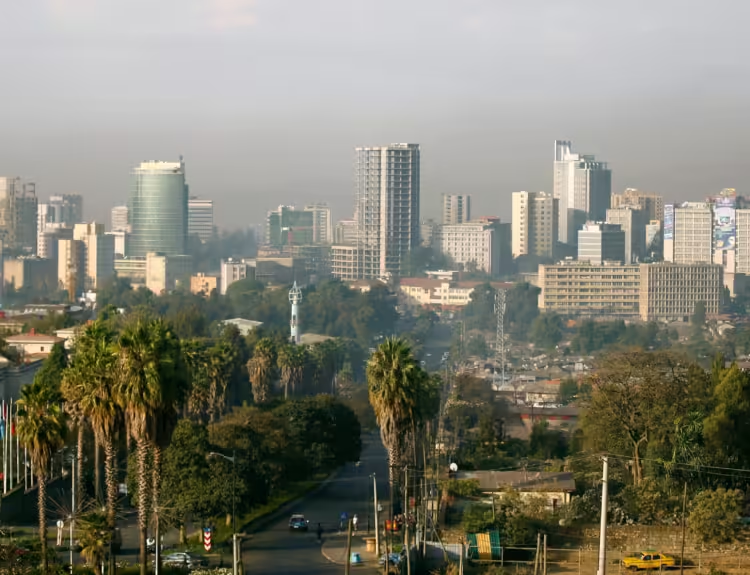Wars in their different manifestations lead to loss of human life, destruction of infrastructure and human capital, political instability and unstable institutions which impede investment and economic growth. These conflicts tend to destroy the tax base while raising military expenditure at the expense of development projects which would in return ameliorate the economy. Here are four of the major conflicts that have reshaped African economies in 2024.
RUSSIA-UKRAINE WARS
The Russia-Ukraine conflict has caused price shocks and disruptions in the supply chain of essential commodities in many African countries that heavily rely on imports from the two Eastern European countries. Russia and Ukraine are major players in the export of wheat – a quarter of the global export of wheat and sunflower seed oil to many African countries and with the raging war, bread and cooking oil prices surged leading to inflation and threatened the food security of countries like Egypt, Libya, Tunisia, Algeria and Morocco in North Africa, Nigeria in West Africa, Ethiopia and Sudan in Eastern Africa and South Africa which account for 80% of wheat imports in Africa according to Africa Union Development Agency- NEPAD (AUDA-NEPAD).
The sanctions imposed on Russia by Western countries would hamper commercial flow between Russia and Africa. This means that there will be little- if any- trade between Africa and Russia using the greenback since Russian banks were suspended from SWIFT. Russia is also one of the biggest exporters of fertilizer which is essential in agricultural production and food security and any disruption in the fertilizer supply chain would be fatal blow to most African economies which are heavily reliant on agriculture.
With Russia being the third-largest producer of oil in the world – after the United States and Saudi Arabia- the disruption of oil prices in the world market lead to an increase in fuel prices and higher costs of food production.
ISRAEL-HAMAS WARS
Investor flight to safe havens after the war between Israel and the Palestinian resistance group –Hamas, saw the dollar strengthen against other currencies and a surge in gold prices. This was immediately reflected by a surge in oil prices which was detrimental to the economies of oil-importing African countries such as Kenya and Mozambique with the World Bank immediately warning that the conflict will have a global economic shock including oil prices rising to $150 per barrel. However, for gold producers such as South Africa, Ghana and Tanzania, the surge in gold prices would mean a boost in their forex earnings thus pushing their economies towards a positive balance of trade.
Egypt-the largest economy in North Africa and second in Africa after Nigeria- was the hardest hit by the effects of this war. After the Israeli Ministry of Energy instructed the operator of the Tamar natural gas field to take it out of service, Egypt imposed power outages of up to four hours across the country. These power cuts were necessitated after Egypt’s natural gas imports dropped to zero from 800 million cubic feet per day leading to inflation reaching an all-time high of 38% by the end of 2023.
HOUTHI’S RED SEA ATTACKS
Since November 2023, Yemen-based Houthi rebels have sustained attacks on commercial vessels in protest to the continued Israeli bombardment of Gaza and the killing of Palestinian people by the Israeli military. The red sea accounts for an estimated 12% global trade valued at $1 trillion and about 15% global shipping traffic. With over 50 commercial and military vessels attacked by the Houthi Rebels, major ocean carriers such as Maersk, Hapag-Lloyd and MSC halted their Red Sea transits. These disruptions affected nearly all industries with severe consequences being felt by key players in various industries such as consumer and retail, agribusiness, automotive, oil and gas and logistics. The Houthi attacks have also forced commercial vessels to reroute from the shorter Suez Canal and the Bab al Mandab to the longer alternative route around South Africa’s Cape of Good Hope. This change in route requires 10 days to cover the extra 4000 miles which in turn forced carriers to spend an extra $1 million per vessel due the higher fuel prices for the longer journey. Another effect associated with the rerouting of the Red Sea trade route is higher insurance costs and delayed delivery of critical inputs.
“Rising security concerns translates to higher insurance premiums or ships. Recent incidents have led to a significant increase in premiums, ranging from 0.7 to 1% of the ship’s value, up from 0.1%. Additionally, there has been a tightening of coverage terms, notably reducing wars risk coverage duration from seven days to just 24 hours. This change imposes substantial extra costs, often tens of thousands of dollars, reflecting the direct impact of security risks on insurance pricing.” Afreximbank noted.
The increase in shipping costs has led to an increase in commodity prices with the most affected region being East Africa. However, commodity exporters on the continent gained from the higher prices even though commodity importers from East Africa were the hardest hit. On exchange rate stability, a net loser like Egypt continued to grapple with foreign exchange shortages while net gainers like South Africa, Madagarscar, Namibia and Mauritius recorded increased demand for their bunkering and restocking services which helped them accumulate foreign exchange reserves that gave them a shot-term cushion to the foreign exchange challenges.
ALSO READ: 11 fastest growing African economies in 2024
SUDAN CIVIL WARS
Raging since April 2023 between Sudan Armed Forces (SAF) led by General Abdel Fattah al-Burhan, and the paramilitary Rapid Support Forces (RSF) led by al-Burhan’s former deputy, General Mohamed Hamdan Dagalo, commonly known as Hemedti, the wars in Sudan has claimed tens of thousands of lives according to the United Nations (UN). The International Monetary Fund’s (IMF) regional outlook for sub-Saharan Africa predicted that countries like Central African Republic, Chad, Eritrea, Ethiopia and South Sudan could be hit hard by the ongoing conflict in Sudan.
In February, a main pipeline for transporting South Sudan’s crude oil abroad through Port Sudan in the Red Sea was damaged in Sudan has crippled South Sudan’s economy where oil export accounts for 90% of the Gross Domestic Product (GDP). The conflict has also caused a refugee crisis with about 10.7 million people displaced and 2.3 million others fleeing to neighbouring countries like Chad and South Sudan. The World Food Program (WFP) has also declared famine in the ZamZam Refugee Camp in the El-Facher region of Sudan mainly due to the disruption of agricultural activities and a blockade of food aid by the warring parties adding to the volatile situation in the region.






